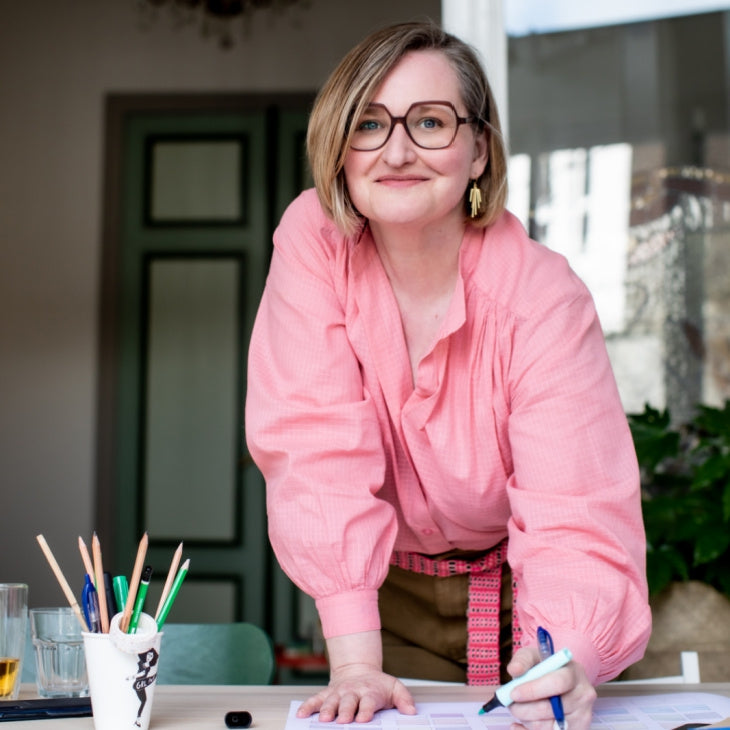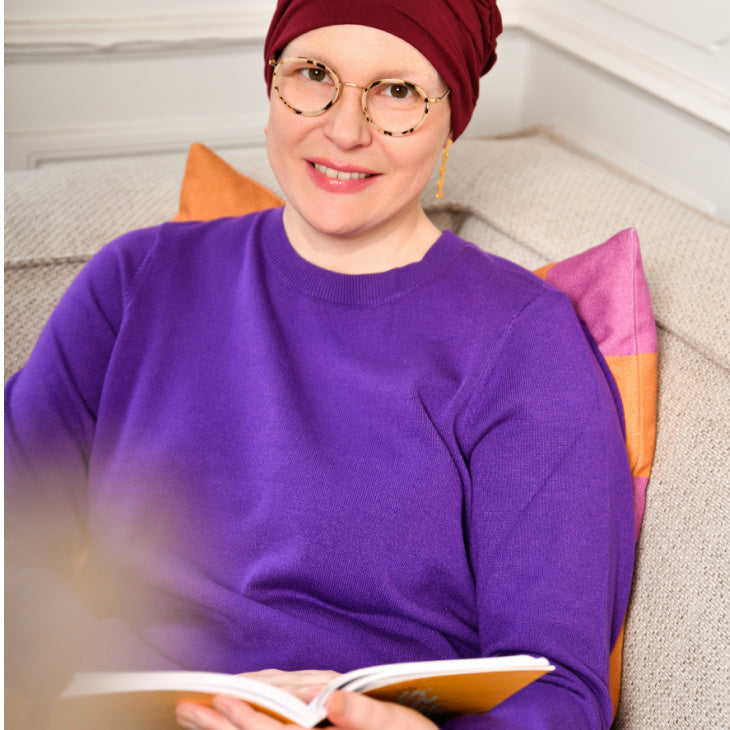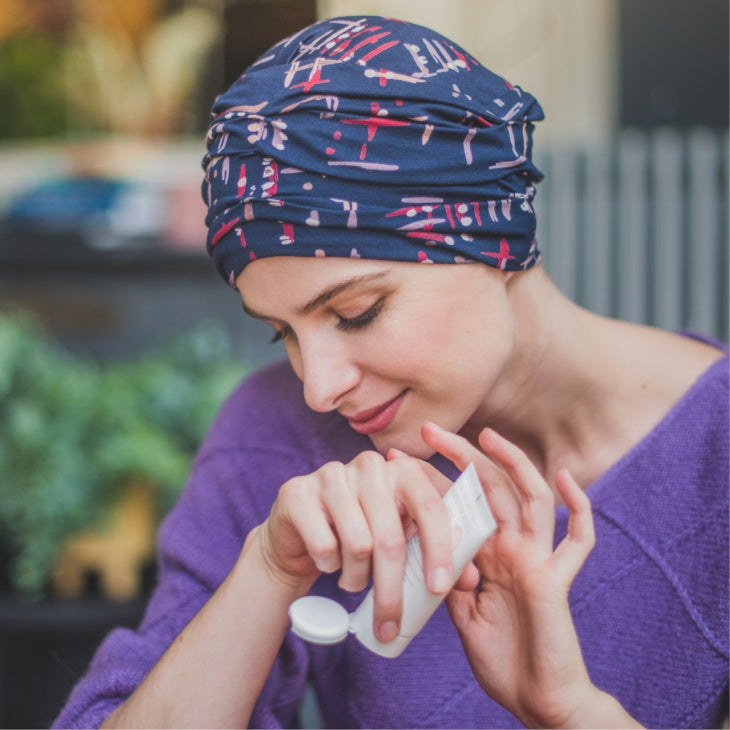The moment you hear the word “chemo,” everyone around you suddenly seems to know someone who’s been through it too. Along with sympathy and well-meant tips, you’ll often hear clichés that can stick in your mind: “Oh, my colleague was throwing up every day,” “I know someone who couldn’t get out of bed for four months,” “My mom was a completely different person after cancer…” But do these stories apply to everyone? Our designer Wendy compares three of the most common chemo clichés to her own experience.

Cliché #1: “You’ll be extremely nauseous”
Wendy: “In movies or TV shows, when a character has cancer, you can bet there’ll be puking scenes. Vomiting and chemo always seem to go hand in hand. But in reality, that’s not necessarily the case. How nauseous you feel depends on the type of chemo you receive. Some people are simply more sensitive to nausea and vomiting than others.
It all comes down to your body’s vomiting center—a part of the brain triggered by toxins in your body (like chemo drugs). For some people, it’s more easily overstimulated. Thankfully, most chemo treatments come with special anti-nausea medications to prevent or reduce symptoms. Your doctors do everything they can to manage side effects.
After my first three sessions, I felt nauseous, but I never vomited because I always took my medication on time. When my stomach felt upset, I focused on resting and breathing deeply. During my last three sessions, with a different type of chemo, I wasn’t nauseous at all. In fact, as soon as the IV came out, I’d get huge cravings for greasy food! It became a ritual: straight from the hospital to the local fry shop.
You hear so many different stories. A friend of mine had to be hospitalized after every chemo because she vomited so violently she risked dehydration. Others would go home and bake a cake. So no, this cliché isn’t always true.”

Cliché #2: “You’ll have no energy for anything”
Wendy: “This also varies a lot—from one chemo type to another, from person to person, and even from day to day. Some people are bedridden for weeks, but treatments have improved so much that many side effects are now better managed than, say, ten years ago. This helps you recover faster and feel less drained. I know women who kept cycling, went to yoga, or met up with friends on good days. Some rare cases even kept working throughout treatment.
My golden rule? Rest enough—even on days you feel like superwoman (or superman). Of course, I made the most of my good days. I’d go shopping or take the train to the beach for a walk. I wanted to get outside as much as possible. Naturally, by chemo six, I didn’t have as many high-energy days as after chemo one or two. But I quickly learned to recognize my limits and stop early—before hitting the wall—so I could save some energy for later.
It’s okay to go slow.
“I told myself, ‘Every minute I rest now equals two minutes faster recovery after chemo.’ Maybe naïve, but pacing my energy worked for me. I did my own groceries, cooked, and stayed socially active. Some days it worked out, some days it didn’t. But remember: no one expects you to push yourself to the max. You don’t need to prove anything—not even to yourself.”

Cliché #3: “You’ll never be the same after chemo”
Wendy: “Chemo definitely changes you—physically and mentally. Your body goes through a lot during and even after treatment. People often say, ‘Chemo ages you by ten years.’ I wouldn’t take that literally, but it’s true that it puts a strain on your body.
Mentally, cancer leaves its mark too. Often, you only fully realize what you’ve been through once the physical symptoms are gone. Many people struggle with picking up the pieces afterward, and that’s completely normal.
It’s okay to feel sad about your cancer, no matter how much time has passed.
Saying chemo or cancer makes you a different person is probably true. But “different” can also mean “better.” I’ve seen this in myself and in many other survivors. You become more in tune with your body and take better care of it. Many people start exercising more, take up yoga or swimming, or begin eating healthier because it makes them feel more energized. I now go to yoga twice a week and try to walk or cycle every day. On busy days, even 15 minutes helps. No day without fruits and vegetables, enough sleep, and very little alcohol—it’s surprisingly easy to maintain when you know why you’re doing it.
I’ve also become much better at listening to what I want. Doing things out of obligation was never my strong suit, but now I’m even more decisive. The little stuff doesn’t upset me anymore. If it’s beyond my control, I let it go. Most importantly, I focus on doing what I love, because that gives me energy. Without that realization, Rosette la Vedette wouldn’t exist, and I wouldn’t have become an entrepreneur. Cancer gave me the push I needed, and it would’ve been a waste not to use it.”

Two extra-important chemo tips…
- Don’t blindly believe everything you read on internet forums. Trust your doctor and oncology nurses more than random stories or myths. They know you personally and understand your needs.
- Don’t constantly compare yourself to others going through treatment. It will only make you more insecure and unhappy. There will always be someone doing “better” than you, but what matters is listening to your own body and focusing on what you can do, not on what you can’t. Everyone is different, every treatment is different, and every day is different—and that’s completely okay.











Leave a comment
All comments are moderated before being published.
This site is protected by hCaptcha and the hCaptcha Privacy Policy and Terms of Service apply.